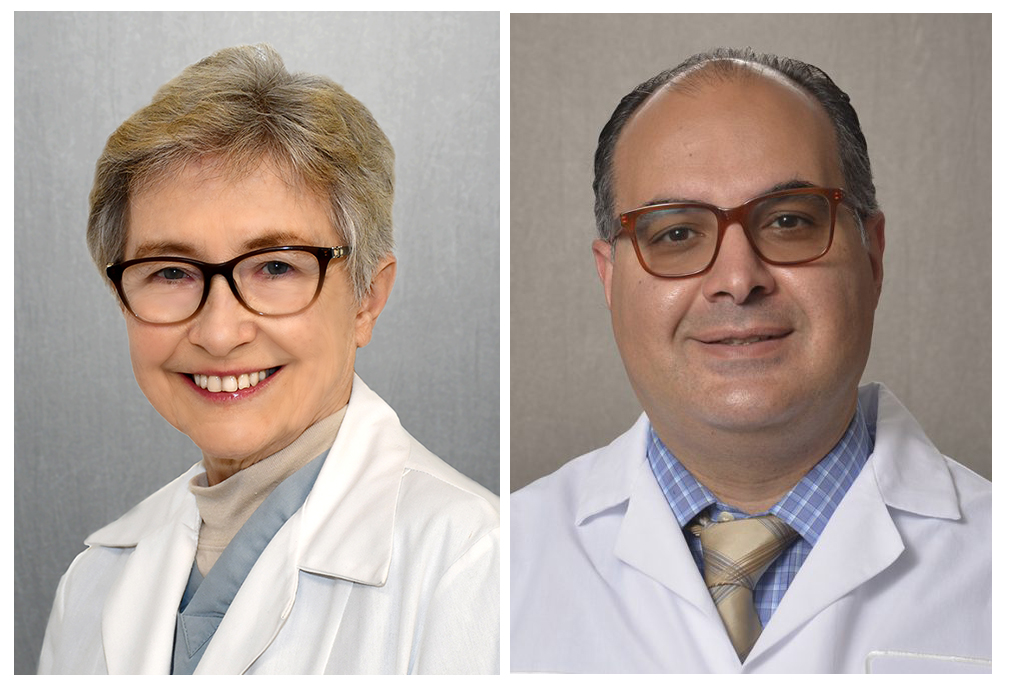Deborah Implants New Device for Treating Central Sleep Apnea
The remedē® System Acts as a “Pacemaker” for the Lungs, Expanding Deborah’s Sleep Treatment Options
Video animation of The remedē® System
A 69-year old Deborah Heart and Lung Center patient with severe sleep apnea was the first in the region this week to receive an implanted device, the remedē® System, to treat his central sleep apnea (CSA).

CSA is a neurological condition that disrupts a person’s sleep because the brain does not send the correct signals to the breathing muscles during sleep. CSA can lead to excessive daytime sleepiness, reduced exercise capacity, a decrease in blood oxygen levels, difficulty concentrating, and irregular or very fast heart rhythm.
Deborah electrophysiologist Pedram Kazemian, MD, performed the remedē System implant procedure. The system consists of a small, pacemaker-like device that is implanted under the skin on the upper chest under light sedation. One wire leads from the device, which sends an electrical impulse to the phrenic nerve in the chest, signaling the large muscle that controls breathing (the diaphragm) to contract.
“We are excited to be able to offer this implantable device to our patients,” said Dr. Kazemian. “This device is implanted during a minimally-invasive procedure, and in some way it is like a ‘pacemaker’ for the lungs. Patients who have CSA experience frequent nighttime drops in oxygen levels which contribute to increased cardiac stress. And, if a patient has heart failure or atrial fibrillation, these CSA events can make their cardiovascular disease so much worse.”
Pulmonologist Marcella Frank, DO—a sleep specialist at Deborah—explained the differences in the types of sleep apnea. “There are two types of sleep apnea,” she said, “obstructive and central. Obstructive sleep apnea (OSA) occurs when the airway gets blocked by the tongue and relaxed throat muscles during sleep. This type of apnea causes blockage, and the most common symptom is snoring. We usually treat this with CPAP, or continuous positive airway pressure. CSA, on the other hand, occurs when the brain does not send a signal to the diaphragm, which controls breathing. The two conditions are quite separate, and need to be treated as such.”
Dr. Frank explained that several advances in sleep apnea technology have made treating the condition much easier. “For CSA, we can now offer the remedē System as an option. Deborah’s electrophysiologists can implant this device at the hospital. For obstructive sleep apnea CPAP remains the gold standard, however, we can now also offer the Inspire Hypoglossal Nerve Stimulator, another FDA-approved device. The Inspire is also an implanted device placed into a patient by an Ear, Nose, and Throat physician outside of the hospital setting. This device greatly reduces OSA events in people who cannot tolerate CPAP. The Inspire provides mild stimulation to the tongue, allowing the airway to remain open during sleep, and keeping oxygen levels normal.”
“It is exciting to have both of these new technologies in our toolbox,” she said. “With our fully comprehensive Institute of Sleep Medicine, we are able to precisely diagnosis our patients’ complex sleep problems with comprehensive sleep studies. These two new minimally-invasive implants offer a whole new approach to treating sleep apnea, whichever type a patient may have. Plus the integration with our electrophysiology department at Deborah ensures that every patient receives specialized care tailored to their needs, and that their cardiac health is addressed as well as their need for a good night’s sleep.”
Deborah Heart and Lung Center in Browns Mills, NJ is an 89-bed teaching hospital that specializes in the prevention, diagnosis, research, and treatment of heart, lung, and vascular diseases. Founded in 1922, Deborah has been a regional and nationally recognized leader throughout its 100-year history, during which time it has healed 2.3 million patients from every corner of the United States and 87 countries in the world. From performing the first open heart surgeries (adult and pediatric) in New Jersey, to running one of the highest volume left-ventricular assist device (LVAD) implant programs in the region, Deborah has stood at the forefront of medical innovation, all while never wavering from its founding mission “there is no price on life.” Deborah is consistently recognized as a leader in patient care from the Centers for Medicare and Medicaid Services, ranked among the top hospitals in New Jersey for patient satisfaction; holds a top-tier Society of Thoracic Surgeons rating which places Deborah among the best cardiac surgery programs in the country; and is designated a national Top Teaching Hospital by The Leapfrog Group. Deborah is an Alliance member of the Cleveland Clinic Heart, Vascular & Thoracic Institute.